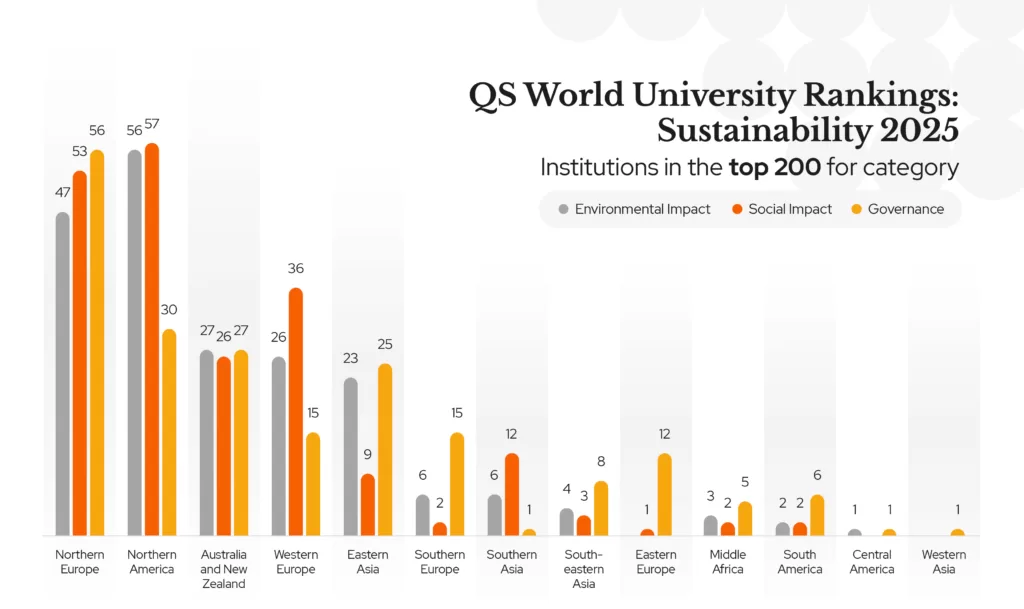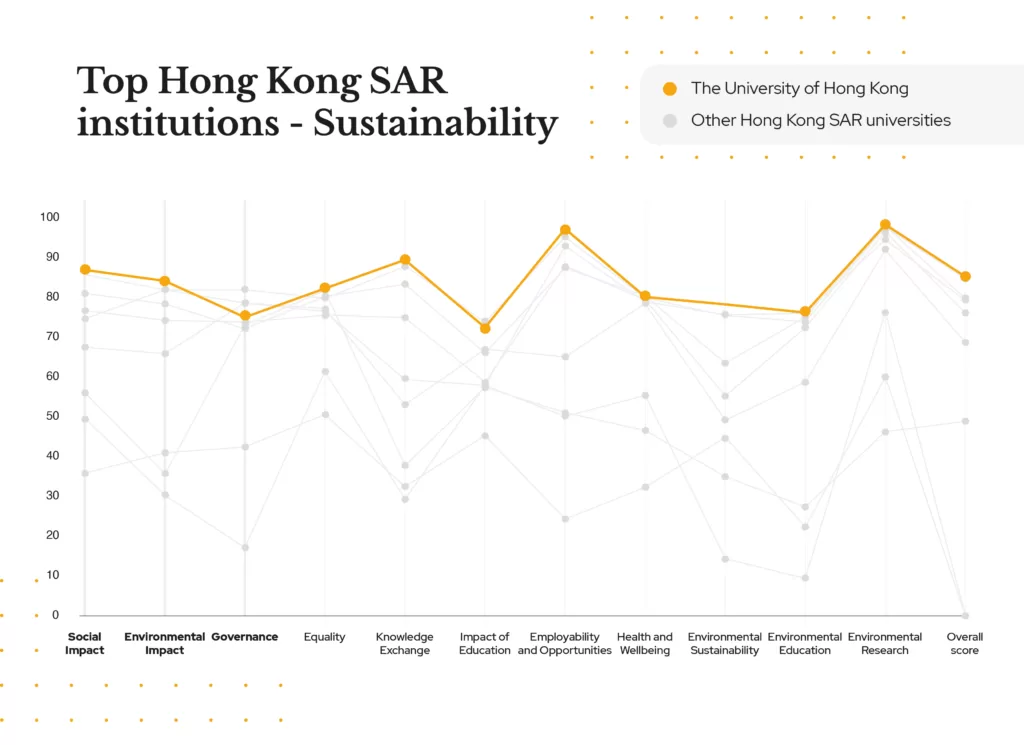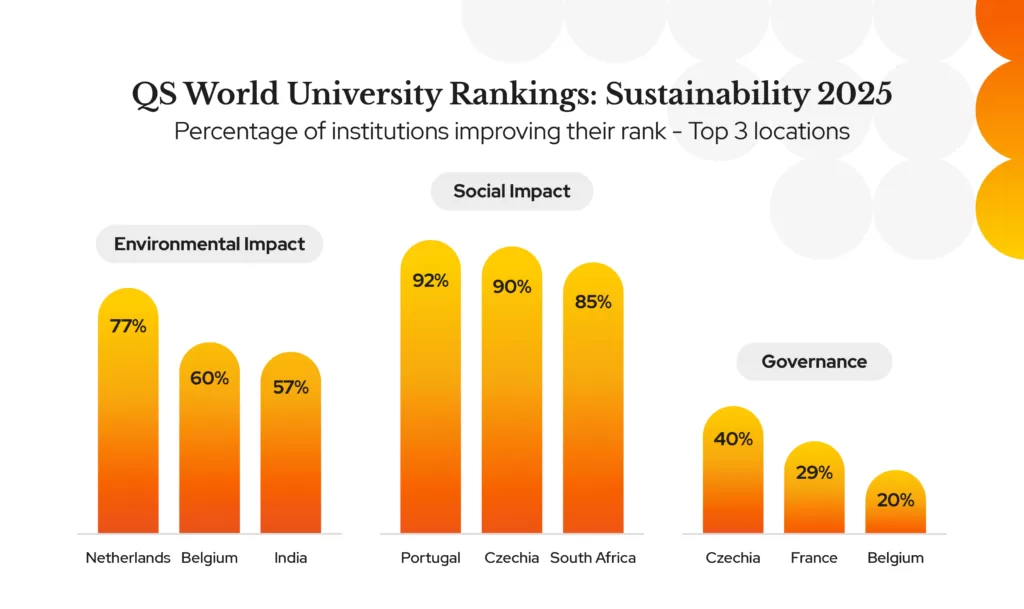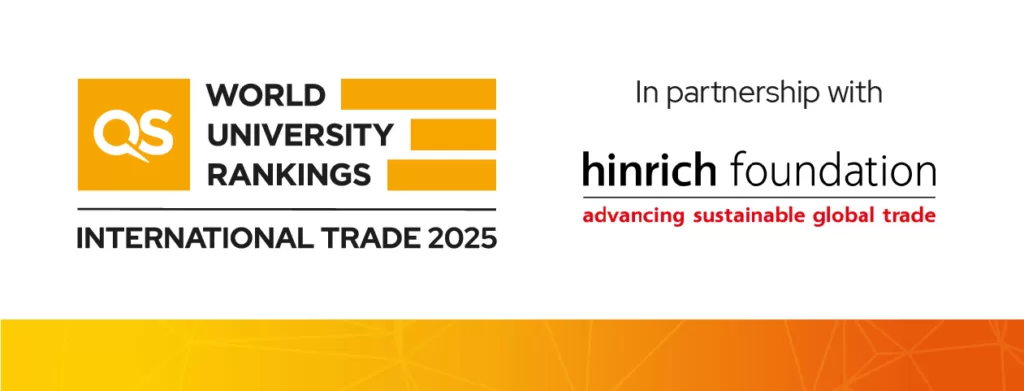
The QS World University Rankings: Sustainability 2025 are now live. Head to TopUniversities.com for the table, or read on for in-depth analysis of the rankings.
The University of Toronto maintains its number one place. However, there has been considerable movement among the top 20 with five new entrants. Only two of the institutions in the top 10 have not moved rank.
The QS World University Rankings: Sustainability 2025 top 10
1. University of Toronto, Canada
2. ETH Zürich, Switzerland
=3 Lund University, Sweden
=3 University of California, Berkeley, US
=5 University College London, UK
=5 University of British Columbia, Canada
=7 Imperial College London, UK
=7 The University of Edinburgh, UK
=9 The University of Manchester, UK
=9 The University of Melbourne, Australia
The Rankings: Explained
The QS World University Rankings: Sustainability launched with a pilot edition in late 2022, before our first full-fledged Ranking in 2023. The Rankings highlight which institutions are demonstrating a commitment to a more sustainable existence, and encompass a variety of factors across environmental, social and governance (ESG) measures. It evaluates the social and environmental impact of universities as not only centres of education and research, but also as major employers.
We use a variety of measures to find outward evidence – from the impact that alumni are making in science and technology to solve climate issues, to the impact of research being done across the UN’s 17 Sustainable Development Goals.
Since our first edition, we have increased the number of ranked institutions by nearly 150%. In this edition, there are over 350 new institutions ranked, bringing the total number of ranked institutions to 1,744.
The Global North leads
The Global North’s universities are leading the way in sustainability performance. Until the University of Cape Town in =45, all universities in the QS World University Rankings: Sustainability 2025 are in the Global North.
If we look at data globally, the picture is stark. Most of the top 200 placements across our three categories are taken up by institutions in North America, Europe, and Australia and New Zealand.

New entrants
There are five new entrants in the top 20.
| University | 2025 rank |
| University College London | =5 |
| King’s College London | 14 |
| University of Helsinki | 18 |
| Pennsylvania State University | =19 |
| Stanford University | =19 |
There are 17 new entrants in the top 100.
- UCL
- Stanford University
- KU Leuven
- Johns Hopkins University
- Université Paris-Saclay
- Universitat Autònoma de Barcelona
- University of Colorado Boulder
- Queen’s University Belfast
- Sorbonne University
- University of Basel
- Technische Universität Dresden
- Université PSL
- Yonsei University
- Ludwig-Maximilians-Universität München
- North Carolina State University
- Rheinische Friedrich-Wilhelms-Universität Bonn
- Tufts University
Highlighting excellence
We’ve done a deep dive into two top performers in the QS World University Rankings: Sustainability 2025. Read our interview with the University of Toronto, who ranked first globally.
Ranked =112, The University of Hong Kong (HKU) is the highest ranked university in Hong Kong SAR. It’s the top institution in Eastern Asia for Environmental Research (ranked =17 globally) and has a top 100 placement in our Environmental Impact category.
Among plenty of other on-campus activities:
- HKU has secured funding of over USD$8 million for seven sustainability projects.
- The University signed a Memorandum of Understanding (MoU) with Fudan University and The University of Sydney to foster research collaboration and “co-organise education programmes that focus on sustainability”. As part of the MoU, the three universities will “strive to formulate university-wide carbon neutrality targets to reduce carbon emissions.” Read more here.

The above chart Hong Kong SAR universities’ performance. HKU’s score across our categories and lenses is consistently strong.
Nations improving across ESG metrics

Above, we see the countries who have a large percentage of institutions increasing across our three categories. With 78 universities ranked, and 57% of them improving their Environmental Impact score, Indian higher education has seen real improvement nationally. However, while they are improving, only six Indian institutions are in the top 200 for Environmental Impact.
An astonishing 92% of Portuguese institutions improved their Social Impact performance. The main driver of this was improvement in the Knowledge Exchange lens and the indicators of Staff Perception and Policy Citations, meaning Portuguese institutions have completed research in relevant areas, and staff’s perceptions of their institution’s impact on society has also improved year-on-year.
Sustainability in higher education will be on the agenda at QS Higher Ed Summit: Europe 2025, which will be hosted in Porto, Portugal.
Frequently asked questions
What is the QS World University Rankings: Sustainability 2025?
The QS World University Rankings: Sustainability provides students, education institutions, governments and other stakeholders with a lens on which higher education institutions are committed to sustainability performance. It evaluates the social and environmental impact of higher education institutions as centres of education and research, as well as assessing how well they navigate the challenge of operating sustainability.
What is new in the 2025 edition?
No significant methodology changes have been made. However:
- The CANIE Accord is now recognised in the QS World University Rankings: Sustainability 2025.
- We have removed a measure titled Job Preparedness (Graduates View) and allocated its 1% weight to the existing Employer Reputation.
- We have significantly improved the data collection for Alumni Impact, adding 2,500 new data points.
What are the key statistics of the QS World University Rankings: Sustainability 2025
- Three categories are informed by nine lenses, which are, in turn, measured by 52 indicators.
- There are 1,744 institutions ranked in the QS World University Rankings: Sustainability 2025.
- 107 locations are represented, with 20 locations in the top 100.
- 351 new institutions have been ranked in this edition.
- 461 institutions have moved up in the rankings.



